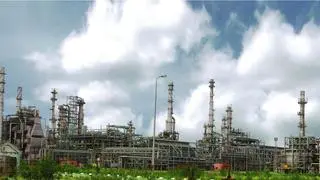The National Environment Engineering Research Institute (NEERI) has not found any marker pollutants such as arsenic, zinc and fluoride in concentrations exceeding the IS (Indian Standard) Drinking Water Standards (2005) in and around Sterlite Industries' Thoothukudi plant in Tamil Nadu.
NEERI has submitted a detailed report to the Supreme Court on whose direction the study was conducted. The Court is hearing a petition filed by Sterlite against a September Madras High Court order asking the company to shut down its copper smelting plant for not complying with the environmental norms. The apex court's interim order has allowed the company to operate. The next hearing is scheduled for July 18.
A 15-member NEERI team inspected air quality, stack emissions, effluent treatment plants, water quality, soil and solid hazardous waste, besides assessing the green belt.
The Bhabha Atomic Research Centre, Mumbai, was engaged for assessment of radon concentration.
The concentration of particulate matter (PM) within the premises randomly exceeded the standard limit of 100-pg/m3, said the report. This may be due to the in-plant fugitive emissions and dust emanating from copper concentrate in the smelter plant, NEERI said.
The Central Pollution Control Board directions in January on control of fugitive emissions must be implemented, it said. The company has five effluent treatment plants for zero liquid effluent discharge.
The radon concentration was observed in the range of five (plus or minus 2) to 23 (plus or minus 6) Bq/m3 (Becquerel per cubic metre) at 12 locations. The BARC data-sheet states that there is no national or international limit on normal outdoor radon levels, the report pointed out.
The area under plantation within the factory estimated at 13.1 hectare of the total area of 102.5 ha covered only 12.1 per cent as against 25 per cent stipulated by the Ministry of Environment and Forests, and should be extended to mitigate the effects of fugitive emissions, it said.








Comments
Comments have to be in English, and in full sentences. They cannot be abusive or personal. Please abide by our community guidelines for posting your comments.
We have migrated to a new commenting platform. If you are already a registered user of TheHindu Businessline and logged in, you may continue to engage with our articles. If you do not have an account please register and login to post comments. Users can access their older comments by logging into their accounts on Vuukle.